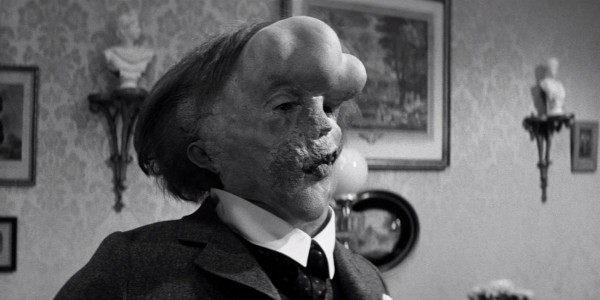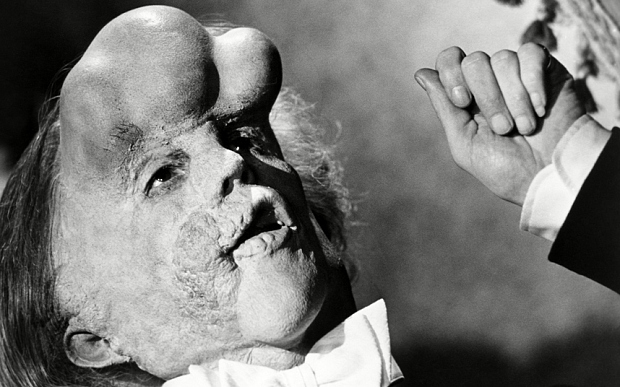This is where Lynch’s brilliance shines. He never lets us forget that John is a human being, but that very very few other people see him that way. As Merrick learns to dress, speak, and converse properly in society, there remains no cure for his deformity and so he simply becomes the subject of another sort of disgusting carnival show, this time playing at high society but never really belonging.
Lynch is the perfect director for a task such as this. His eye hones in on all of the ways that society, the surgeon, and the carnival owner all behave like animals toward Merrick. He sees the malformed human heart and holds it out for us all to see and examine. In the end we see that the film is not about transforming a near animal into a man, but about all of the ways that we, who have no outer scar, are deeply flawed within.
He explores the limits of humanity not as the frontier of what qualifies biologically as a human, with head, and arms, and language, but what qualifies as the frontier of our inner humanity, with compassion, mercy, and vulnerability. This unfolding of our undesirable traits, thoughts, and feelings is what Lynch does best so while this film amy not meet modern standards horror, it is a sort of horror film.
Yet again, however, Lynch cannot help himself, and makes it horror at the sight of ourselves, with which we are confronted, not the horror of the film.













